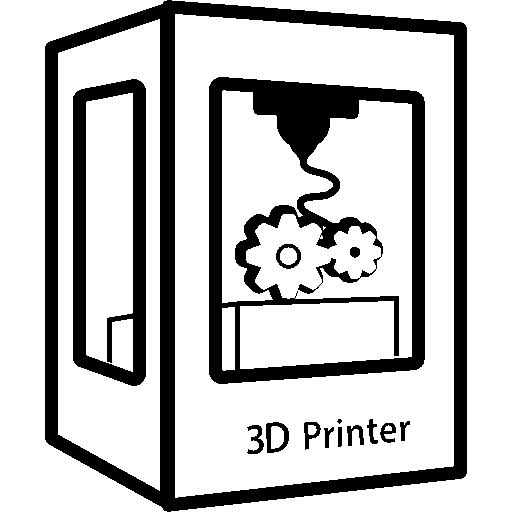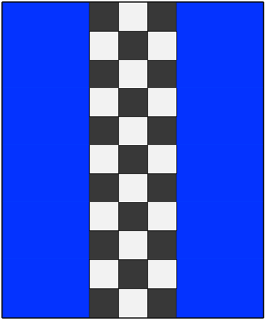I have a question, I revently found a old 3d printer in my brothers basement, apparently its a “nophead mendel 90” that he built years ago but then lost interest in.
I would love to try and bring it back to life, but I know very little about printing, and have no idea where to start. Is a printer this old compatible with modern slicers? What software would I use to connect to it via usb? I tried to do research on my own, but found very little useful info about how to actually get it working
There’s some info about it here https://reprap.org/wiki/Mendel90
This is a very old printer, from the early days of reprap. From a practical standpoint you would get better results from the cheapest new ender i3, and it would be a lot easier.
If you want an interesting project though it should be entirely possible to get it working, and you’ll learn a lot from it. If it’s still using the original Sanguinololu controller board that will be your biggest issue, as I doubt a modern version of the marlin firmware will fit in a ATmega644P. Your best bet would be to replace the controller board with something modern, then you can use it as any modern 3d printer.
“Fewer vitamins”
What does that mean? I’ve been 3d printing a few years never heard that before.
Vitamins is a reprap term for non 3d printed parts, screws, motors, etc.
Lol nice ty.
To add, if it’s using the Melzi board that some used, then you should be able to load g-code onto it using the micro SD card slot. It will depend on the firmware if it can recognise modern gcode though. You may be able to compile a modern version of marlin for it too.
The board says “Melzi Ardentissimo” and does have a sd card slot, so I guess first step would be to find an old, blocky mini-usb cable, haven’t needed one of those in a hot minute, and backup the firmware.
And it looks like it can just print from the SD, but since there is no display or controls of any kind and the sdcard has multiple printfiles, its probably sime kind of magical filename…
From the instructions it looks like it uses pronterface https://raw.githubusercontent.com/nophead/Mendel90/master/dibond/manual/Mendel90_Dibond.pdf
Even if modern slicers have gained a lot of advanced features, to my knowledge the gcode they output is still very simple. You can put all kind of fancy commands in the start and end gcode, but the actual printing part consists almost exclusively of commands that move the nozzle to a specific XYZ coordinate, and/or make the extruder motor move the filament either backwards or forwards.
Maybe ask your brother about what software he used it with? If the printer has an sdcard reader it might be easier to print off that than try to get it to communicate with a computer. I don’t have any first hand experience with that old printers, but I would guess it uses some kind of serial over USB protocol similar to modern printers. If you’re using Windows I think you might need to track down a driver for the printer’s serial controller, but if you have Linux there’s a chance it has the necessary drivers built in.
Of course. Especially those DIY printers are pretty resilient to aging. I have Anet A8, one of the early ones, that has been through so many changes it’s far better than most new printers these days. If you are into it, go ahead it will be a fun project.
3d printers haven’t changed that much. If you can get some info from your brother and he can tell you what might be wrong (if anything) that would be very helpful.
They’ve changed A LOT for one they aren’t made of wood anymore. This isn’t an old ender. It’s made of mdf!
But he can learn. And if he gets it going, and the other components are OK, he could transfer it onto a metal frame. He could use this printer to print parts for some new printer build that was made from parts of this current build.
Never heard of that one but old printers, if in good condition, work just fine They might not understand some of the newer gcode commands but that’s only a few Nero3D streamed a three-part series where he assembled and use an original Ultimaker from 2013 Barnacules Nerdgasm used a similar Ultimaker to print parts for a Voron 2.4 build Still very capable printers
You can start by creating a custom machine profile in Cura (or any other slicer) with the appropriate dimensions for your machine and start from there. It should work, but you will probably need to do a bit of calibration afterwards. Or you can start from the profile of a similar machine and tweak that
Modern slicers can work with anything. At it’s core all printers simply run on G-code which is itself just a series of coordinate instructions telling the printer where to move the head. As long as you have the right sets of startup/configuration codes (which should be trivial to find online for any open-source project printer like the Mendel90 using the standard controllers of the era) any slicer will work with it.
Looks like the original project files made by Nophead are still available.
Everybody, thanks for all the help. After a whole lot of fiddling I got the thing to move, just to find out that it expects 3mm Filament, which is not sold at my local store. So faced with replacing the hotend and extruder I gave up and ordered a kp3s pro for less than 100€, maybe my first printer should be something that actually works.
Good enough to get you started. For day-to-day use you might want to upgrade to a modern design.
software? Could be Repetier host (never used it so but I know that it was common back in the day): https://www.repetier.com/download-now/
now that is helpful, how did I miss those. I’m excited!



